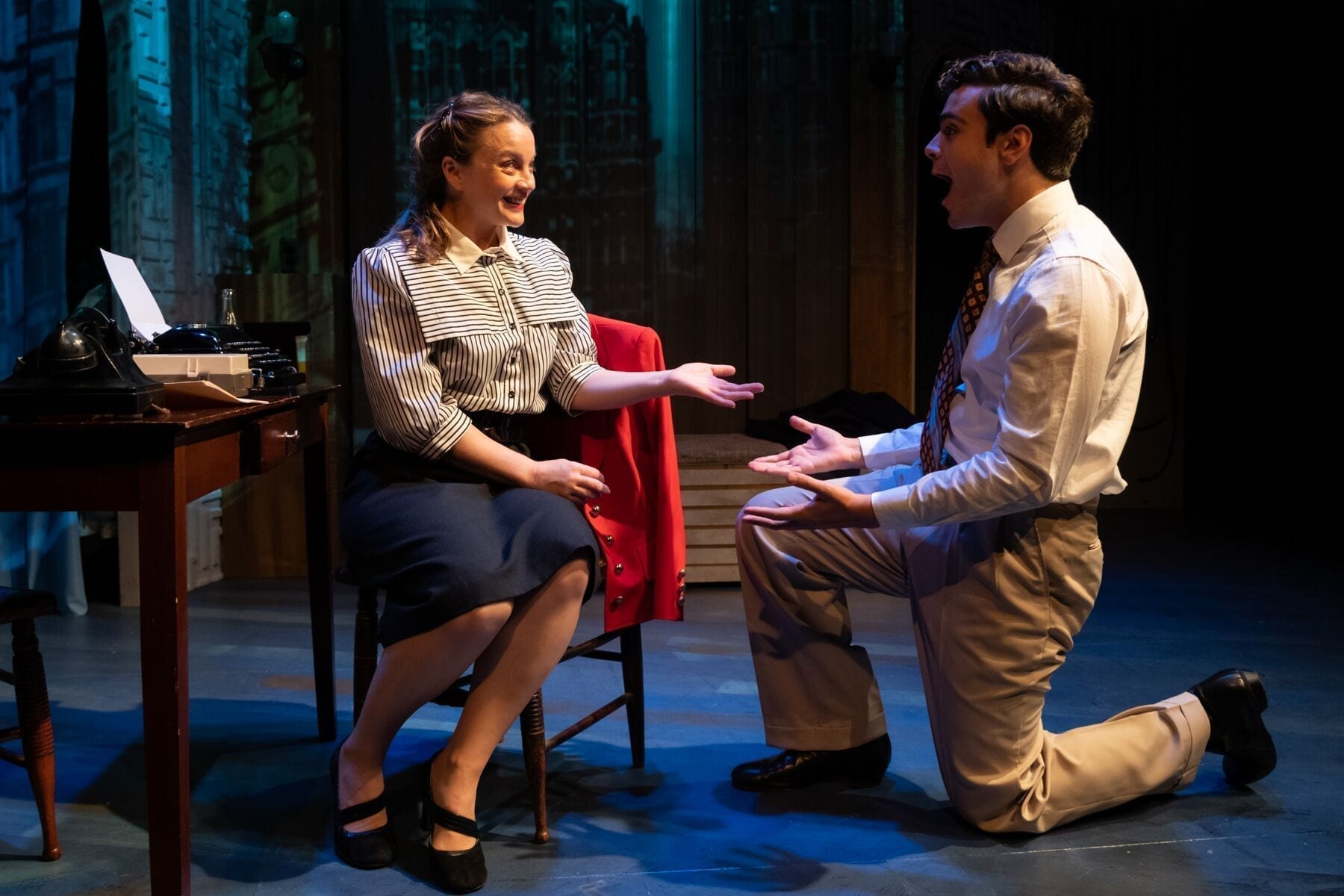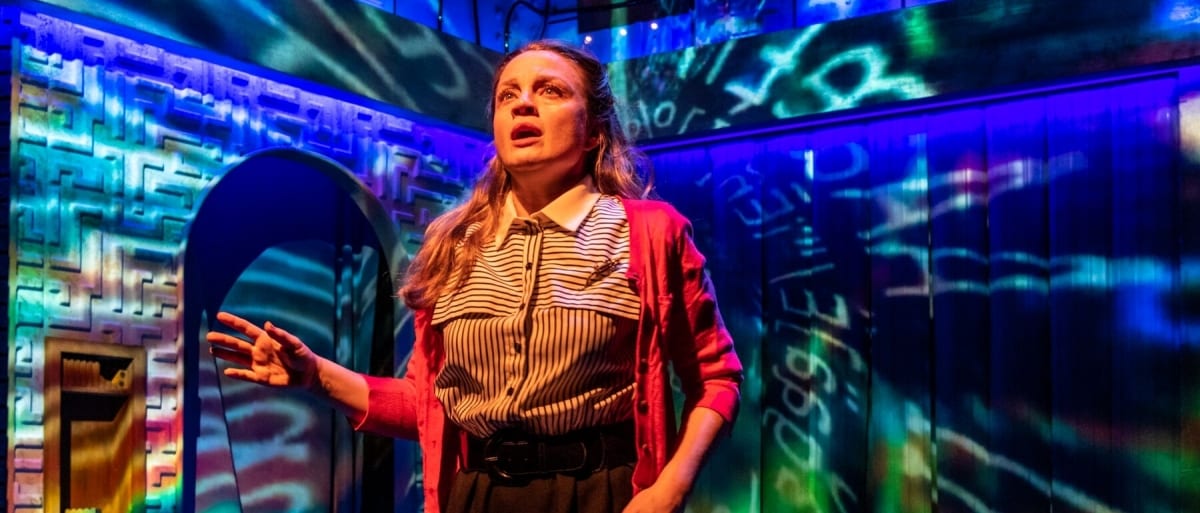The blurb for Debra Whitfield’s Off Broadway premiere of her play, Tech Support, hints at a relevant, female-driven, clever yet cute play of a 21st century woman overwhelmed with her dependence on technology. She will, however, in the end actually rescue herself after being immersed in the past. Written and directed by Whitfield, the play is all those things and less.
Within the first five minutes of meeting Pamela Stark (played with a vaudevillian gusto by Margot White), Pamela is beset by her frustrations with a faulty copier, the confusions of a new cappuccino machine instructions, an impudent Siri voice, a robotic Customer Service voice that puts her as number 266 in the queue, a friend who’s too busy to meet up, a husband who will text her their divorce papers, and finally the human voice of the service representative, Chip (a computer play on words). The cappuccino explodes; the copier ticks away like a time bomb, the voice of the Customer Service rep humors us and temporarily calms Pamela. All this is the turbulent overture of the operatic flurry that is to follow. Whew!
The theatrical device to extricate Pamela from this technological squall is the trope of time travel. Time travel is a common theme in literature whose travel stories focus on the moral consequences of traveling into the past or the future, with H. G. Wells’ The Time Machine and Back to the Future being cherished examples.
Ms. Whitfield’s production is full of the sound and fury of time travel, enhanced by the excellent efforts of her design team (Natalie Taylor Hart’s scenic design, Ed Matthew’s sound design and Elliott Forrest’s projection design). Each time Pamela is transported to the past, she twirls in swirling time-travel lights and an eerie sound. When she arrives we know where she is as the stage lights up with slide projections of contemporary faces and logos. The eras she is conveyed to are rife with the important feminist events of the 20th century: women struggling for the right to vote (1919), women emerging from a war wanting to participate in the greater social world beyond domesticity (1946), and women marching for equal rights (1978).

All the characters Pamela meets in 1919 grow into the other time periods. She, of course, as a time traveler, does not. They struggle and are transformed, at times abruptly and at a breakneck pace. As an observer, she does not. The supporting cast (especially Ryan Avalos, Lauriel Friedman, and Mark Lotito) soldiers on admirably through the ages despite a few first-night costume gaffes and line anticipations.
The question of how and why Pamela needs to escape the stridency and electronic complications of 2020 is answered by Whitfield, not with a Pamela transformed by the struggles of her “sisters” and readjusting to her real life, but with a Pamela preferring to live and love in a less clamorous era. She falls in love with a man 20 years her junior in 1946. She merely observes the historical events that lead to her 21st century independence, but never confronts her real struggle. Pamela finds peace in embracing the notion that it’s not the “when” but the “who” that ultimately is the source of real happiness, far away from the advancing century of technology dependence.
And this is the difficulty with Tech Support and its over-enhanced production. Ms. Whitfield has a lot to say about being a woman in the 21st century, but her focus is blurred by her enthusiasm to be relevant. As clever as the time-travel approach to the complex issues is, this happily-ever-after resolution obfuscates Pamela’s real conflict. We are left with the question of: Stuck in the past. Now what?

